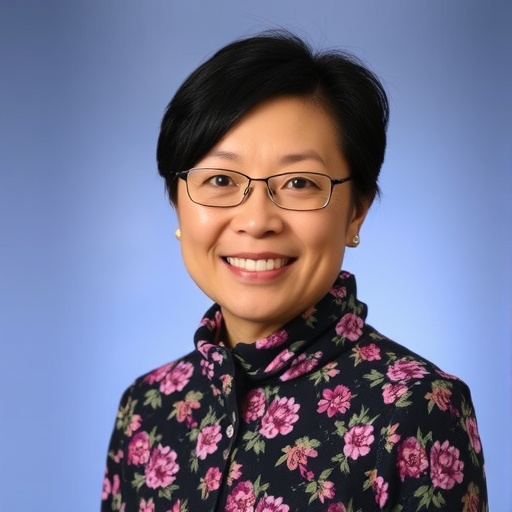The American Pediatric Society (APS) and the Society for Pediatric Research (SPR) have announced that Dr. Wendy K. Chung, MD, PhD, will receive the prestigious 2026 Mary Ellen Avery Neonatal Research Award. This accolade recognizes a pediatric investigator whose groundbreaking research has profoundly advanced neonatal health through either basic or translational scientific endeavors.
Dr. Chung, the Mary Ellen Avery Professor of Pediatrics and Chief of Pediatrics at Boston Children’s Hospital as well as Pediatrician-in-Chief at Harvard Medical School, has established herself as a titan in human genetics and genomics. Her illustrious career has dramatically enhanced the understanding of congenital anomalies, transforming the landscape of newborn screening by applying cutting-edge genomic technologies. This transformative work hearkens to the visionary legacy of Dr. Mary Ellen Avery, whose pioneering studies laid the foundation for neonatal respiratory care.
A crucial aspect of Dr. Chung’s pioneering work lies in her discovery of over 60 genes implicated in human diseases, with five of these genetic entities named in recognition of her contributions. These discoveries have catalyzed the integration of genetic testing, newborn screening, and innovative therapeutic approaches into clinical settings. Her research has provided unparalleled insight into the molecular pathology of conditions such as congenital diaphragmatic hernia, congenital heart disease, and esophageal atresia, conditions that have historically presented significant challenges in neonatology.
The Mary Ellen Avery Award, endowed by the APS and SPR in 2013, honors Dr. Avery’s monumental lifelong achievements, including the first description of respiratory distress syndrome. This award serves to highlight individuals whose research propels neonatal health forward, encompassing a continuum from molecular discovery to clinical application. Dr. Chung exemplifies the award’s spirit, merging scientific rigor with translational impact.
Dr. Stephen Daniels, President of the American Pediatric Society, lauded Dr. Chung’s contributions to the genetics of neonatal disorders, emphasizing her leadership in adopting whole exome and whole genome sequencing in clinical care. He highlighted her roles on the National Academy of Medicine committees that scrutinize the clinical use of genetic testing, underscoring her influence on policy as well as practice. These remarks underscore Dr. Chung’s pivotal position at the nexus of research, clinical innovation, and healthcare policy.
Similarly, Dr. Eric D. Austin, President of the Society for Pediatric Research, praised Dr. Chung’s extraordinary research productivity and her commitment to child health through science-driven discovery. His comments spotlight her ability to navigate and integrate basic, translational, and clinical research while fostering community collaboration, an essential component for advancing pediatric medicine and improving outcomes for neonates worldwide.
Dr. Chung’s academic pedigree is formidable; she earned her PhD in human genetics from The Rockefeller University and her MD from Cornell University Medical College, followed by a fellowship in medical genetics at Columbia University. With over 800 peer-reviewed publications, including seminal articles in top-tier journals such as The New England Journal of Medicine, JAMA, Nature, and Science, Dr. Chung maintains continuous NIH funding, attesting to the significance and impact of her work. Her editorial roles in leading texts further extend her influence throughout pediatric medicine and research.
Her research has rapidly transitioned from gene discovery to practical application, exemplifying precision medicine in neonatology. By leveraging whole genome and exome sequencing, Dr. Chung’s efforts break traditional diagnostic barriers, uncovering novel genetic etiologies and informing tailored treatment plans. This shift toward genomic medicine represents a seismic change in neonatal care, reducing diagnostic odysseys and enabling early intervention.
Furthermore, Dr. Chung has actively contributed to refining newborn screening strategies, ensuring that they are comprehensive and sensitive enough to detect rare, life-threatening conditions. Through her efforts, newborn screening panels worldwide are evolving from basic metabolic assessments into sophisticated genomic tests that can identify myriad genetic disorders from birth, optimizing long-term health trajectories.
Her leadership also extends to ethical and policy domains, where she has advised on the implications of genetic testing in neonates. Navigating the balance between technological potential and ethical considerations, Dr. Chung advocates for equitable access to genomic technologies and the responsible use of genetic data, critical as these innovations become increasingly embedded in clinical practice.
This award not only acknowledges Dr. Chung’s scientific discoveries but also celebrates her role as an academic leader who has shaped pediatric research culture. By mentoring new generations of researchers, fostering interdisciplinary collaborations, and championing diversity and inclusion within pediatrics, she ensures that advances in neonatal health continue with vigor and societal relevance.
The Mary Ellen Avery Neonatal Research Award embodies a tradition of honoring visionary scientists whose work transforms neonatal care. Dr. Wendy K. Chung’s appointment as the 2026 recipient pledges continued innovation in the intersecting realms of genetics, neonatology, and clinical practice, promising to elevate the standard of care for newborns globally.
For additional details about Dr. Chung and the Mary Ellen Avery Award, interested readers may visit the American Pediatric Society’s official website.
Subject of Research: Neonatal health advancements through genetics and genomics, congenital anomalies, and newborn screening innovation.
Article Title: Dr. Wendy K. Chung Receives 2026 Mary Ellen Avery Neonatal Research Award for Pioneering Contributions in Genomic Medicine
News Publication Date: October 14, 2025
Web References:
– American Pediatric Society: https://www.aps1888.org
– Society for Pediatric Research: https://www.societyforpediatricresearch.org
– APS website for Mary Ellen Avery Award information: https://www.aps1888.org
Image Credits: Wendy Chung, MD
Keywords: Research organizations, Neonatology, Scientific journals, Research on children, Pediatrics




